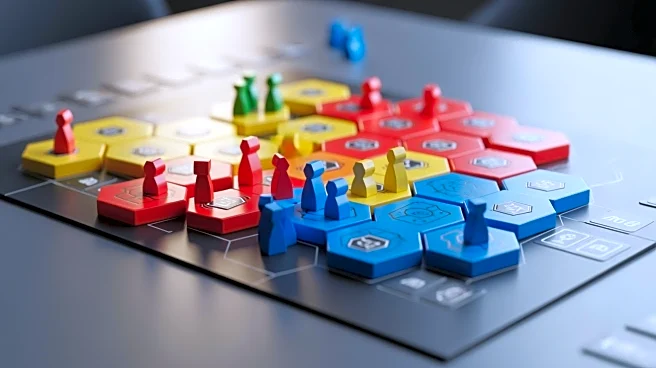What's Happening?
Netflix has announced the development of a series of projects based on the popular board game Catan, in collaboration with Asmodee and Catan Studio. Created by Klaus Teuber in 1995, Catan has sold 45 million
units globally and is considered a gateway to modern board gaming. The adaptation will include both scripted and unscripted content, with Teuber's sons, Guido and Benjamin, involved in the projects. Asmodee CEO Thomas Koegler expressed excitement about the expansion of Catan's universe and its integration into pop culture through Netflix's platform.
Why It's Important?
The adaptation of Catan by Netflix signifies the growing trend of streaming services investing in board game and video game IPs to attract diverse audiences. This move highlights the increasing recognition of board games as a significant part of entertainment culture. By bringing Catan to a broader audience, Netflix aims to capitalize on the game's popularity and expand its reach beyond traditional gaming circles. This could lead to increased interest in board games and further adaptations of similar properties, impacting the entertainment industry and consumer engagement.
What's Next?
Netflix's partnership with Asmodee and Catan Studio may lead to a series of adaptations that could include various formats, such as series or films. The involvement of Teuber's sons suggests a commitment to maintaining the game's original spirit while exploring new storytelling avenues. As streaming platforms continue to seek unique content, the success of Catan's adaptation could encourage further collaborations between gaming companies and media producers, potentially leading to more board game adaptations in the future.
Beyond the Headlines
The adaptation of Catan could influence the perception of board games as viable sources for storytelling and entertainment, similar to video games. This development may encourage other board game creators to explore media adaptations, potentially leading to a broader cultural acceptance and integration of board games into mainstream entertainment. Additionally, it could spark discussions on the creative possibilities of adapting interactive experiences into narrative formats.










